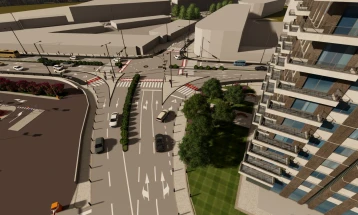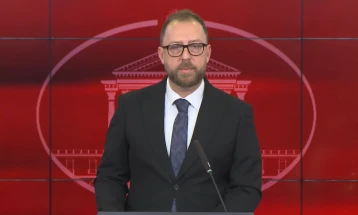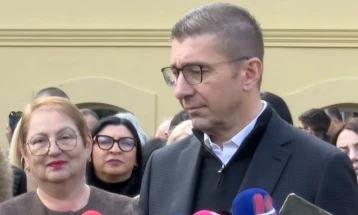2022 draft-budget in Parliament in mid-November

Skopje, 4 November 2021 (MIA) – North Macedonia’s draft-budget for 2022 will be sent to Parliament on November 15 before it starts being debated for ten days by members of the financing and budget committee.
Following the debates, it will be returned to the government to prepare an amended motion before the document is sent back to Parliament to be put on the agenda of a plenary session.
The national budget should be adopted by MPs by December 31 at the latest.
Total expenditures are projected at Mden 272,4 billion (EUR 3,89 billion), while revenues at Mden 238,9 billion (EUR 4,4 billion). The deficit stands at Mden 33,5 billion (EUR 545 million). Total revenues are 7.4-percent higher compared to 2021, while expenditures are up by only 1.4 percent compared to last year. There are cuts in unproductive expenditures, such as the six-percent reduction in the section of goods and services.
The deficit and the debt repayment in the amount of Mden 11,6 billion (EUR 188,4 million), of which Mden 6,1 billion (EUR 99,1 million) for the external debt and Mden 5,5 billion (EUR 89,3 million) for the government debt, are to be funded through a combination of domestic and foreign borrowing while considering optimization of borrowing costs. New facilities will be introduced as sources for the deficit financing, such as green bonds and inflation-indexed bonds within the Accelerated Economic Growth Plan.
Capital expenditures rise by 27 percent compared to 2021 and their share in the total expenditures amounts to 14 percent, the highest on record.
The inflation rate is projected at 2.4 percent and the pressure of the energy crisis is expected to drop in the second half of 2022.
Gross investments are projected to rise by 8.5 percent while consumption by 3.1 percent. In addition, exports are expected to increase by 8.3 percent, with positive trends on the labor market through a 3.1-percent growth in the number of employees, thus affecting the unemployment rate.
Subsidies will be paid in the agriculture sector, along with increased support for the private sector, active employment measures, fiscal decentralization, and healthcare.
The budget’s four fundamental objectives are continued care and protection of public health, economic recovery, increase of investments and financing of state’s basic functions. It is designed on the basis of projections on global economic trends, especially those of Germany as North Macedonia’s biggest economic partner.







